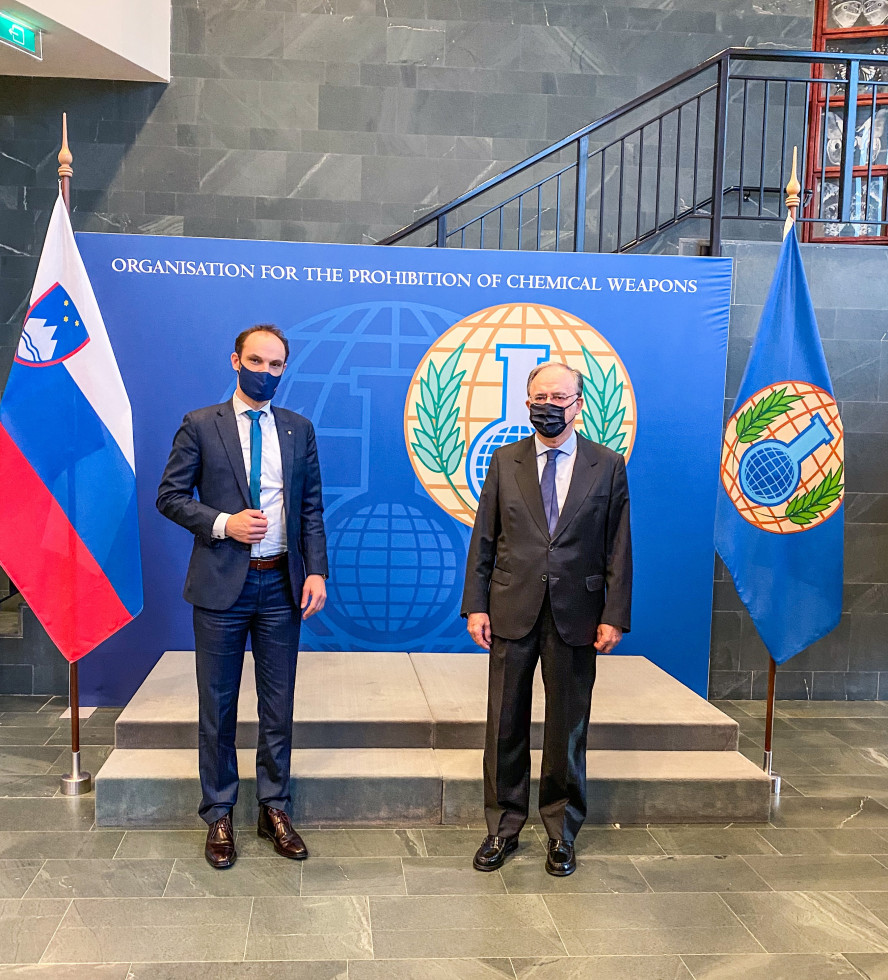Minister Anže Logar meets with Fernando Arias, Director-General of the Organisation for the Prohibition of Chemical Weapons
- Ministry of Foreign Affairs

Minister Anže Logar and Director-General of the OPCW Fernando Arias | Photo: MFA | Author Ministrstvo za zunanje zadeve
Minister Logar expressed his concern over the renewed incidents of prohibited use of chemical agents in the last few years, pointing out the need to ensure that such abuses do not go unpunished. He assured Director-General Arias that Slovenia, as a participating state of the International Partnership against Impunity for the Use of Chemical Weapons, would staunchly support the efforts to identify those responsible for the use of chemical agents in Syria, and commended the work of the OPCW Investigation and Identification Team in this field.
Minister Logar explained that Slovenia has full trust in the expertise, professionalism and impartiality of the OPCW Technical Secretariat, and congratulated Director-General Arias heading the Secretariat and his team for their dedicated work, which they have managed to carry out despite the trying circumstances arising from the COVID-19 pandemic. He also welcomed the plans for the construction of a new facility, the OPCW Centre for Chemistry and Technology, which Slovenia supported with a financial contribution.
Director-General Arias thanked Slovenia for its support, and said it was an important partner in maintaining the international consensus against the use of chemical weapons. He went on to express his expectation that the close cooperation aimed at designing effective measures to preserve global peace and security would continue and to outline the core activities of the OPCW for eliminating the obstacles standing in the way of a world free of chemical weapons.
Slovenia has been an active OPCW participant since 1997, when the CWC entered into force. The main goal of the Convention is to eliminate an entire category of weapons of mass destruction by prohibiting the development, production, acquisition, stockpiling, retention, transfer or use of chemical weapons by States Parties. The Organisation has established a special verification mechanism monitoring the implementation of the CWC in States Parties. In recognition of its work to eliminate chemical weapons, the OPCW was awarded the Nobel Peace Prize in 2013.

